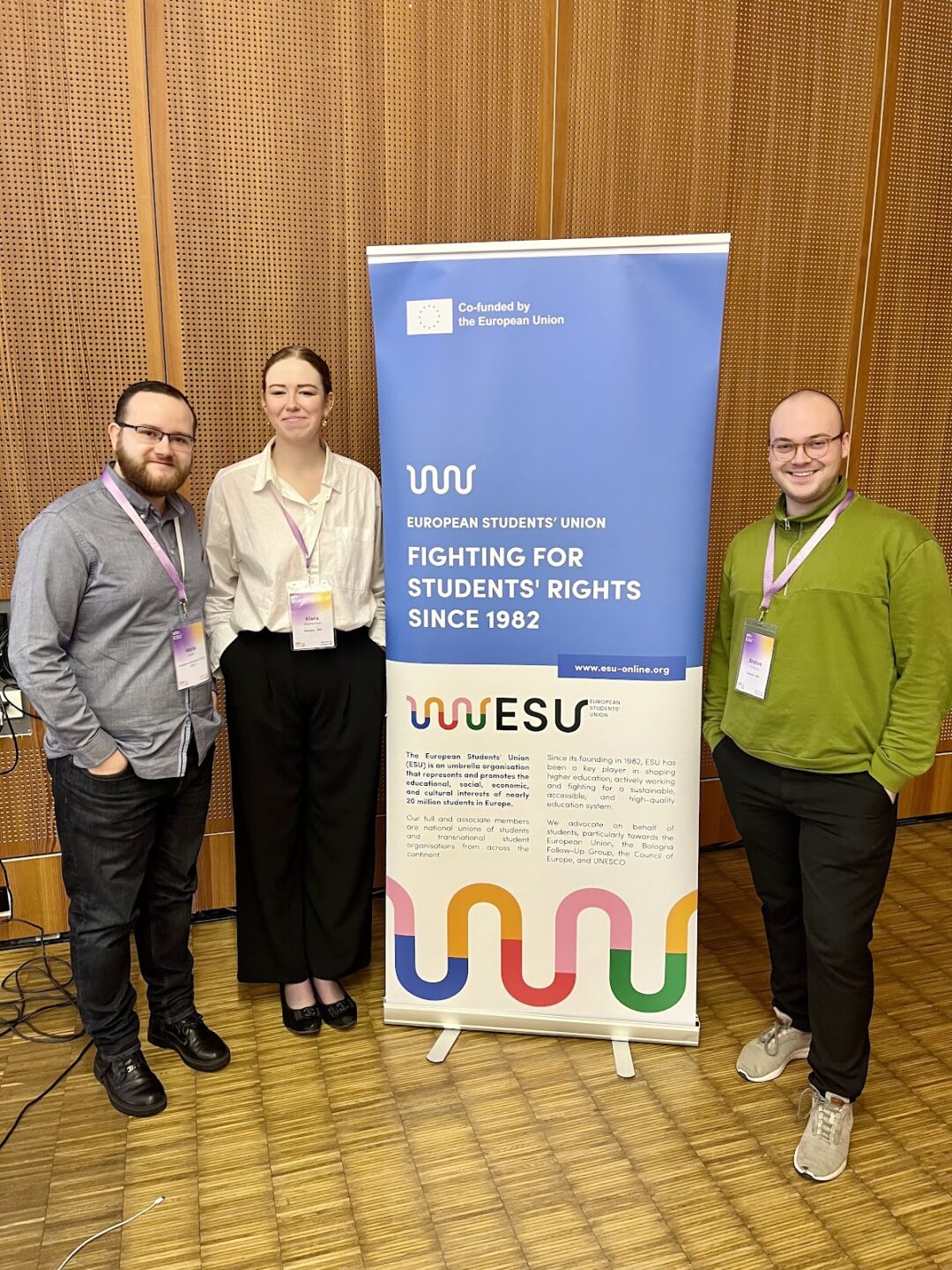The European Students Convention (ESC) was co-hosted by the European Student Union (ESU) and the German National Union of Students (FZF). ESC is one of the recurrent internal events of ESU, where the representatives from the 45 different national student member unions are able to meet. The member unions take turns to arrange the event, SFS did this a year ago and this time it was Germany’s turn.
Klara and Andreé from SFS international committee at ESC in Cologne, Germany.
The theme for the ESC was the debates ‘of the day’, with the Bologna Process being in the center. During the ESC they presented the results of the 10th edition of ESU:s publication Bologna with student eyes as it is a bit more than 20 years since it was first implemented. The debates discussed creating the prerequisites for student participation and the policies of the European Union. The new policies on mobility and the upcoming Higher education package and how it will impact students, student at risk schemes, digitalisation, AI and European elections was also among the topics that was discussed.
As usual the ESC was also spent discussing and meeting with the representatives of the member unions within ESU, as well as an opportunity to discuss internal matters of the Nordisk Ordförandemöte (NOM), a collaboration between Nordic and Baltic national student unions.

Klara and Andreé from SFS international committee together with Horia, president of ESU
Thursday began with an introductory speech by Horia, president of ESU, which was followed by a session about EUROSTUDENT 7. EUROSTUDENT 7 is a report regarding the Social and Economic Conditions of Student Life in Europe between 2018–2021, of which a new version is to be released this summer. There was also a panel on the bologna process where the upcoming report from ESU about the bologna process from the students perspective was discussed.
On friday we started the day with a session about Students at risk in Germany which was very interesting as they talked about the problems and possibilities with the program. Klara and Andreé learned a lot during the presentation and will bring those back to Komit as we are also working on trying to implement this here in Sweden. Then we discussed the European Credit Transfer and Accumulation System (ECTS), as this is one of the key commitments from the bologna process.
Saturday´s first session was about another key commitment from the bologna process, the proposal for a Council Recommendation which is called ‘Europe on the Move’ – learning mobility opportunities for everyone. The rest of the day was filled with sessions and workshops regarding academic careers, joint degrees and student participation, as it vastly differs from country to country. One example of this is the situation regarding the ongoing political repression against Belarusian academia and the violations of students’ and teachers’ rights, where we got to listen to the Belarusian Students’ Association talking about how they work under these circumstances.
All in all it was an interesting ESC and both Klara and Andreé will bring the experience back to Komit and into Komit’s work.
